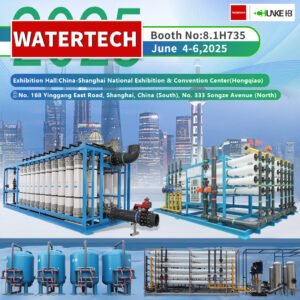Reverse Osmosis & Water Treatment in Venezuela
CHUNKE projects of Reverse Osmosis Water Treatment in Venezuela including different types of water treatment systems.
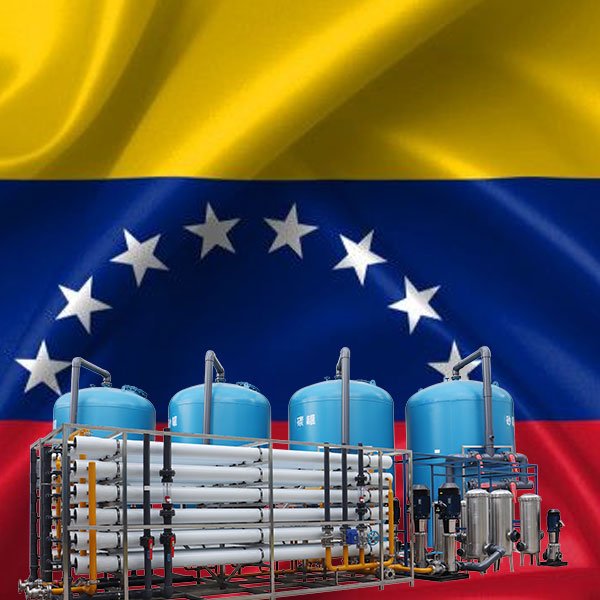
Venezuela, known as the Bolivarian Republic of Venezuela, sits on South America’s northern coast. This country boasts a continental landmass, complemented by numerous Caribbean Sea islands and islets. It covers an area of 916,445 km. In 2022, the population was around 29 million. Caracas, the capital, is also its largest urban agglomeration.
The Caribbean Sea and the Atlantic Ocean border Venezuela’s continental territory to the north. Colombia lies to the west, while Brazil bounds it to the south. On the northeast, it touches Trinidad and Tobago, and Guyana on the east. A presidential republic, Venezuela consists of 23 states, a Capital District, and federal dependencies. These dependencies include Venezuela’s offshore islands. As one of Latin America’s most urbanized countries, most Venezuelans live in northern cities or the capital.
Total Renewable Water Resources in Venezuela
Venezuela (Bolivarian Republic of) renewable water resources was at level of 1,325 billion cubic meters per year in 2020, unchanged from the previous year.
- Renewable surface water: 1,302.7 billion cubic meters per year
- Renewable groundwater: 227 billion cubic meters per year
- Renewable water resources per capita: 46,596 cubic meters per year
- Dependency ratio : 39.2 %
Meanwhile, CHUNKE provides wide range of filtration and economical solutions based on the Venezuela’s water resources. Our pumps, dosing pumps, reverse osmosis membranes, electronic components, and drives are all world-renowned suppliers. So, our water treatment in Venezuela becomes more popular accordingly.
- Surface water is water from river, lake which can be treated using different methods, such as Ultrafiltration Systems, Brackish Water RO accordingly.
- Desalination can be used for water from ocean, or sea source, which can be treated using Sea Water Reverse Osmosis Systems; Desalination Systems
- Ground Water or brackish water is from water located in the pore space of soil and rock “Borehole well”, which can be treated using Reverse Osmosis Systems, Borehole Water Filtration Systems, Well Water Filtration Systems, Chemical Dosing, UV Water Sterilizer accordingly.
- Government water supply, which could have high level of hardness or high level of chlorine, can be treated with Water Softener System, Media Water Filters.
CHUNKE Projects of Water Treatment in Venezuela
Meanwhile, CHUNKE designs and produces water treatment systems that meet the World Health Organization requirements. Our pumps, dosing pumps, reverse osmosis membranes, electronic components, and drives are all world-renowned suppliers. So, our water treatment in Venezuela is suitable for drinking.
CHUNKE has over 15 years of experience as a global provider of B2B water treatment solutions for a variety of applications and industries, we offer a large selection of all types of reverse osmosis, ultrafiltration, electrodeionization and water treatment systems to meet your industrial needs accordingly. So, CHUNKE’s extensive global experience in engineering and manufacturing allows us to pre-engineer and customize water treatment and reverse osmosis systems to meet a wide range of customer requirements and specifications.
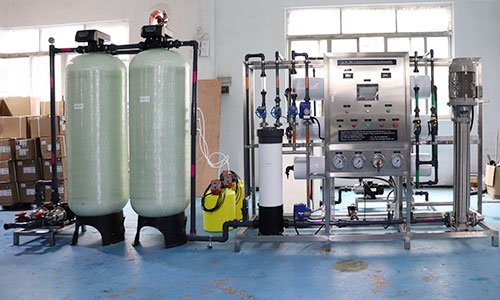
2T seawater
desalination
system
equipment
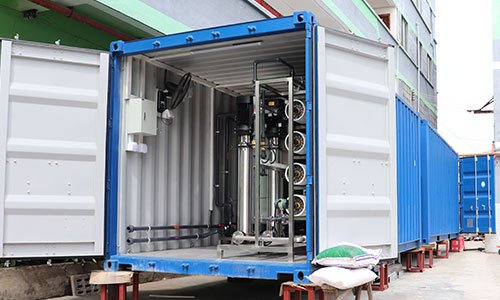
3T container
reverse
osmosis
equipment
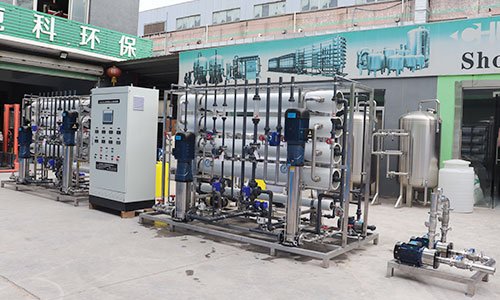
4.8T primary reverse osmosis equipment + 1.5T secondary concentrated water recovery system
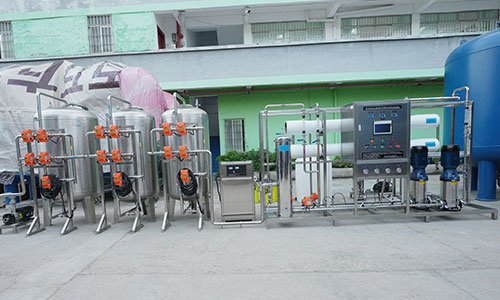
4T reverse
osmosis
system
equipment
Environmental Challenges
Venezuela encounters several environmental challenges that directly impact its water resources. These challenges include sewage pollution of Lago de Valencia, oil and urban pollution of Lago de Maracaibo, deforestation, soil degradation, overfishing, and urban and industrial pollution along the Caribbean coast. Irresponsible mining operations also pose a threat to the rainforest ecosystem. These issues contribute to the contamination and scarcity of water in the country, making it crucial to implement effective water treatment solutions.
Water Resources in Venezuela
To understand the scope of water treatment requirements in Venezuela, it is essential to examine the country’s water resources. Venezuela has a total renewable water resource of 1,233.2 cubic kilometers as of 2000. The freshwater withdrawal rate stands at 8.37 cubic kilometers per year, with 6% for domestic use, 7% for industrial purposes, and 47% for agriculture. The per capita freshwater withdrawal is approximately 313 cubic meters per year. These figures highlight the importance of properly managing and treating water sources to meet the needs of the population.
Reverse Osmosis: An Effective Water Treatment Solution
One of the most effective methods for water treatment, especially in regions with limited access to clean water, is reverse osmosis (RO). Reverse osmosis systems utilize a physical process to desalinate and remove salt from water at room temperature. This method has proven to be highly efficient in removing various impurities, including colloids, organic matter, bacteria, and viruses. By employing ultra-thin composite membrane elements, reverse osmosis systems can achieve high desalination rates while ensuring the removal of harmful substances.
Advantages of Reverse Osmosis Systems
The purified water produced by reverse osmosis equipment offers several advantages:
- Clarity and Translucency: Reverse osmosis systems produce water that is clear, translucent, and free from visible impurities. It is colorless and tasteless, ensuring a visually appealing and refreshing drinking experience.
- Removal of Impurities: Reverse osmosis systems effectively remove minerals, organic components, and harmful substances from water. This results in water that is sweet, mellow, and physiologically beneficial, with enhanced dissolving, penetrating, metabolic, and diffusing powers.
- .Toxic Substance Removal: Reverse osmosis systems have higher requirements for the removal of various toxic substances such as organic matter, carcinogens, and heavy metals. This ensures that the water is safe for consumption and minimizes the risk of health issues associated with contaminated water.
Reverse Osmosis Systems in Venezuela
In Venezuela, the implementation of reverse osmosis systems plays a significant role in addressing the challenges of water pollution and scarcity. These systems are designed to cater to different water sources and treatment requirements, including surface water, desalination of seawater, and groundwater or brackish water.
Surface Water Treatment
Surface water, derived from rivers, lakes, or fresh water wetlands, can be effectively treated using various methods, such as ultrafiltration systems and brackish water reverse osmosis. Ultrafiltration systems employ advanced membrane technology to remove impurities and provide clean water suitable for consumption. Brackish water reverse osmosis, on the other hand, utilizes reverse osmosis membranes to desalinate brackish water sources, ensuring the removal of salts and other contaminants.
Seawater Desalination
Desalination is a crucial process for treating water from ocean or sea sources. Seawater reverse osmosis systems are specifically designed to handle the high salinity levels present in seawater. These systems utilize reverse osmosis membranes that effectively remove salts and other impurities, providing clean and drinkable water.
Groundwater Treatment
Groundwater or brackish water, found in the pore spaces of soil and rock, can be treated using reverse osmosis systems, chemical dosing, and UV water sterilizers. Reverse osmosis systems are particularly effective in removing salts, minerals, and other impurities from groundwater sources, ensuring safe and clean water for consumption. Chemical dosing and UV water sterilizers further enhance the purification process by eliminating bacteria, viruses, and other harmful microorganisms.
Government Water Supply Treatment
Government water supply systems often contain high levels of hardness or chlorine. To address this, water softener systems and media water filters can be employed. Water softener systems remove hardness-causing minerals, such as calcium and magnesium, resulting in improved water quality. Media water filters, on the other hand, utilize various filtration media to effectively remove chlorine and other impurities, ensuring safe and clean water for consumption.
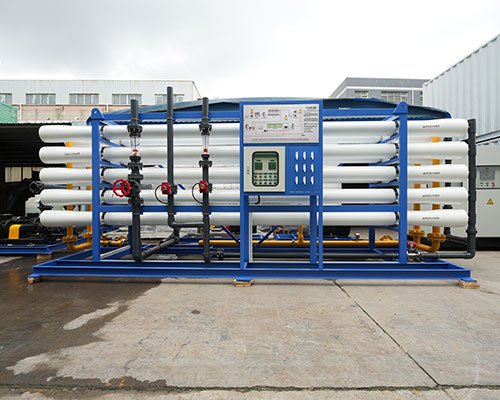
Chunke is Trusted Water Treatment Supplier from China
Reverse osmosis water treatment plays a crucial role in addressing the water challenges faced in Venezuela. By utilizing advanced RO systems and complementary water treatment technologies, clean and safe drinking water can be made available to both military personnel and the local population. Wastewater treatment solutions further contribute to environmental sustainability and public health. Applying the lessons learned from previous water supply operations, Venezuela can enhance its water treatment efforts and ensure a sustainable supply of clean and safe drinking water for its people. With the implementation of innovative and efficient water treatment solutions, reverse osmosis continues to be a valuable tool in the pursuit of clean water in Venezuela.
Chunke Water Treatment‘s expertise in producing high-quality reverse osmosis systems has contributed to improving water treatment capabilities in Venezuela. So, their reliable and efficient RO plants have been implemented in various projects across the country, ensuring access to clean and safe drinking water.

